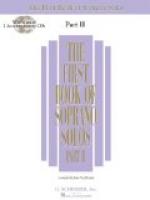He pursued diligent and business-like methods in his study. With the aid of a concordance he found and tabulated what the Gospels had to say about “money,” “gold,” “silver,” “goods,” “riches” and “treasure,” words that might serve as clews to discover the mind of God in the matter he searched out. Also he read carefully the Epistles to see what, in the more settled state of the church, was enjoined after the dissolving of the community at Jerusalem.
His thoughtful study involved the spare hours of many days, and he emerged from it with certain convictions which were not likely soon to be shaken. He set his arguments in order with a deliberation and logic with which a lawyer might prepare his brief. His leading conclusions as to the teaching of the Scriptures on the subject were somewhat as follows:
First, that the possession of riches is a disadvantage to a man as to his entering the kingdom of heaven. Indeed, that it would render it impossible but for the grace of God with whom all things are possible.
Second, that the teaching of the Lord Jesus placed the seeking of worldly goods in utter contempt and disregard as compared with heavenly riches. Indeed, they might well be abandoned for the sake of that treasure. That even the necessities of life were not the things to be anxiously sought, but were guaranteed by God in response to the diligent, first-in-order, whole-hearted seeking of His kingdom and righteousness. That this teaching, however, was guarded against misinterpretation by practical instructions in the Epistles to work for honest support and in order to have to give.
Third, that an instant effect of the coming of the Holy Spirit was a practical illustration of that disdain of earthly goods inculcated by the teaching of the Lord Jesus; and the result was not the want of any, for “neither was there among them any that lacked.”
Fourth, that that striking example, set at the head of the age as an object-lesson for its entire course, was not literally followed by the Churches subsequently formed, but its principle was carried forward to them also, Paul enjoining an “equality,” saying to the Corinthians, “Your abundance being a supply at this present time for their want, that their abundance also may become a supply for your want; that there may be equality.”
Fifth, that the giving up of possessions at Pentecost was spontaneous and voluntary, not forced; and the subsequent giving was to be not a legal necessity, but as the heart inclined. The flavor of delight to God would be lost if otherwise. The giving would have value in His eyes only as it was done, not of necessity, but cheerfully.




